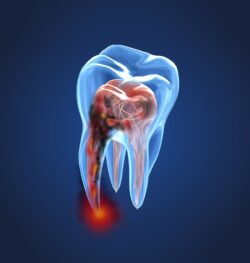 Our teeth are important to our looks, our health and our happiness. They help us chew our food, nourishing our bodies, helping us stay healthy and strong. Since they make up our smile, our teeth also help to make a good first impression on others and feel good about ourselves so we should take great care of them.
Our teeth are important to our looks, our health and our happiness. They help us chew our food, nourishing our bodies, helping us stay healthy and strong. Since they make up our smile, our teeth also help to make a good first impression on others and feel good about ourselves so we should take great care of them.
Humans grow two sets of teeth in our lives. These are the primary (or baby) teeth and the secondary (or adult) teeth. Once your adult teeth have grown in, usually by the time you’re age twelve or thirteen, it’s very important to care for your teeth because there will be no further natural replacements. The most pervasive threat to a long life for your teeth are cavities.
What Is A Cavity?
Tooth decay is when tooth enamel weakens and breaks open, exposing the sensitive soft tissues and nerves within. These holes in the enamel, which expose the interior of your tooth to bacteria and can possibly cause serious infections, are called cavities. If cavities are not repaired, they can cause sensitivity or even pain in the affected teeth, making proper chewing difficult, limiting your dietary options and making it hard to get proper nutrition. And, after the common cold, they are also the ailment with which people are most frequently diagnosed.
But how do cavities start anyway? When we have cavities, how do we fix them? And what can we do to prevent cavities so we don’t have them in the first place? Dr. Brent Engelberg of AH Smiles in Arlington Heights, IL has the answers.
How Do Cavities Form?
Bacteria are thriving in the warm, wet environment of your mouth. They are mostly harmless but can cause tooth decay if not properly controlled. Food particles and saliva combine in our mouths to form plaque, a clear, sticky substance on our teeth. This is the bacteria’s favorite food, especially when it includes sugars or starches. When plaque forms in places that are hard for us to clean such as in between teeth and right at the gum line, the bacteria will consume it and keep right on eating down through the enamel.
How Are Cavities Treated?
The most commonly administered treatments for cavities are fillings, in-lays, on-lays and root canals. For fillings, the holes or weakened areas in tooth enamel are reinforced with various substances to stop the process of decay by denying any further bacteria and acids access to the weakened part of the tooth enamel. Fillings can be made of composite resin, amalgamated metals, gold, silver or glass ionomer depending on the patients preferences and budget and the location of the filling.
If your tooth decay is severe enough, a root canal may be required. A root canal therapy is when tooth decay has caused an infection inside the tooth that has spread down into the root of the tooth. Root canals have a scary reputation but they are an efficient way to effectively remove tooth decay and save your natural tooth.
Preventing Cavities
It’s often more difficult to fix something broken than it is to take care to prevent it from breaking in the first place This is also true with cavities. Preventing cavities is much simpler, less expensive, more comfortable and less time-consuming than getting dental treatment to repair them.
Dr. Engelberg recommends brushing after meals or at least twice daily with a fluoride toothpaste to remove the plaque that may have formed on your teeth. Flossing at least once daily will help remove plaque between your teeth and just below the gum line. Cutting down on sugar and carbohydrates and staying properly hydrated are also strongly recommended in order to slow down the breakdown of your enamel.
The most important step to take towards preventing cavities and all dental problems is to attend regular check-ups and cleanings at your dentist’s office.
Scheduling Your Dental Check-up in Arlington Heights, IL
For those patients in Arlington Heights, IL or schedule an appointment online to consult with Dr. Engelberg. If you think you may be suffering from cavities or would just like a cleaning to prevent them, contact us online or call (847) 230-9703 today!
